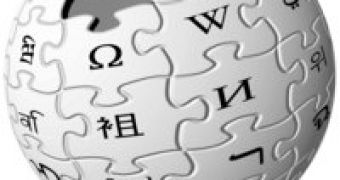The legal dispute between the British National Portrait Gallery (NPG) of London and a Wikipedia contributor, American Derrick Coetzee, has taken a new turn as the Electronic Frontier Foundation (EFF), an international non-profit organization that fights for freedom of speech with a focus on “digital rights,” has just announced that it has taken Coetzee as a client and will provide him with legal representation.
The dispute started after the Wikipedia contributor uploaded some 3,300 photos of portraits housed in the gallery, which he downloaded from the NPG’s site, unlawfully, the gallery claims. The portraits themselves are in the public domain, some several hundred years old, and US copyright law and a recent court ruling state photos of public domain works can't be copyrighted as they lack “originality,” apart from the effort of the photographer.
The NPG claims that UK or rather English law does not allow for these types of photos to be copyrighted, though the issue may not be as straightforward as it makes it out to be, and has asked Wikipedia to take down the photos, the rights to which it claims it owns. The gallery has also threatened legal action against Coetzee in a letter sent to him by NPG legal representatives.
Wikipedia has stood out to defend its user, on the base that he is an American and that its servers are also located in the US, therefore not subject to English law, but also questioned the gallery's motives as a partly publicly funded organization, saying that more exposure to the works should, in theory, be the biggest if not the only aim of the gallery.
Still, the NPG says that licensing the high-resolution photos is an important revenue stream for the company, not so much from digital use but from publications in various books or magazines. It also claims that it has spent £1 million creating the digital copies but those figures are disputed by some.
The EFF has now stepped in to defend Coetzee, claiming that all of the accusations are without grounds including the copyright infringement claim. The NPG has made four claims in the legal threat: breach of contract, as the site's Terms of Service stated that the photos couldn't be downloaded, unlawful circumvention of technical measures, as the photos were protected with Zoomify, infringement of NPG's database right and, of course, the copyright infringement claim.
“As we explained to NPG in a letter sent on July 20,” the EFF writes, dismissing all of the claims, “it's quite clear under U.S. law that Mr. Coetzee did nothing wrong - as far as U.S. law is concerned, the photos are not copyrightable, the NPG website's "browsewrap" contract is unenforceable, there is no "database right," and using Zoomify on public domain images doesn't get you a DMCA claim. It's also clear that everything he's alleged to have done took place on his computer and Wikipedia's computers, none of which are in the UK.”

 14 DAY TRIAL //
14 DAY TRIAL //